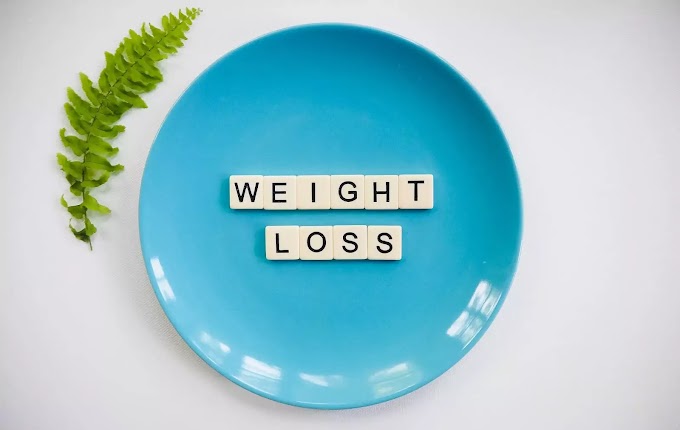IBS in pregnancy: with a little effort you can get relief from the problem!
Are you mom-to-be too? Do you have a stomach ache or your stomach feels cramped due to cramps? Are there any changes in your bowel movement? So, you should seek the help of a specialist, as it may cause Irritable bowel syndrome. IBS in pregnancy, a condition that usually occurs during pregnancy. It can become chronic, as it affects your large intestine. Yes, you heard it right! This situation can snatch the mental peace of pregnant women and force them to face hardship. Early treatment and lifestyle changes can help in dealing with IBS (IBS) in pregnancy. Let us know what can be done to avoid this problem in pregnancy and how to keep ourselves healthy.
There are a few things you should know more about before proceeding. One of these is that pregnancy can bring a happy feeling but it is also challenging! If you are pregnant, you have to take full care of yourself. This is because pregnancy will make you feel all kinds of experiences and even discomfort, which can be painful for you. You can suffer from difficulties sleeping, morning sickness, nausea, irritation, vomiting, indigestion, diarrhea, and even constipation. Not only this but you can also see a change in your bowel movement. Once you notice these changes, you should immediately seek the help of a specialist, as it may cause irritable bowel syndrome. But at the same time, you should also remember that every pregnancy is different. Some women may experience it or some may not. Therefore, it is very important to be aware of this problem. Let us know what is the problem of IBS in pregnancy.
What is the problem of IBS in pregnancy? (IBS in pregnancy)
Irritable bowel syndrome discomfort is known as a chronic bowel issue, which can cause stomach cramps, bloating, flatulence and constipation, or even diarrhea. Pregnant women may face discomfort due to these symptoms. In addition, this condition can cause severe stomach problems, discomfort, and a lot of discomforts. It is not yet known why this condition occurs, but no definite treatment has been found so far for this condition. IBS in pregnancy The discomfort of(IBS) (IBS in pregnancy) can be improved by bringing changes in the lifestyle and can be recovered from the symptoms.
What is the relationship between pregnancy and IBS?
You may be surprised to know that IBS in pregnancy can cause many gastrointestinal problems, including Morning sickness, heartburn, and constipation Problems have been included. Therefore it will be mandatory for you to ensure that you pay attention to what you eat. You can enlist the help of your specialist who will guide you regarding foods.
What causes IBS in pregnancy? (Causes of IBS in pregnancy)
Do you know, an increase in stress level, occurring in pregnancy Causes such as hormonal anxiety, hormonal imbalance, even the pressure of the baby growing inside the uterus on the stomach and intestines can cause you to have IBS in pregnancy. In addition, dairy products, peanuts, cauliflower, beetroot, and even broccoli can also be a cause of IBS. Not only this, alcohol, caffeine consumption, heavy meals or spicy and oily food, skipping meals, and taking iron pills during pregnancy, which cause constipation, can all invite this painful situation.
IBS Symptoms(IBS Symptoms) Symptoms of IBS (IBS) in
PregnancyPregnancy may vary according to different trimesters. If the woman is in the first trimester of her pregnancy, she will have irisation in IBS, acidity There may be a problem of and even diarrhea. In addition, constipation is also one of the irritating symptoms that can cause pregnant women to have trouble in their last trimester. Mucus along with feces, abdominal pain, and also some common symptoms like bloating, flatulence, and Gas problems can also disturb a pregnant woman. If you notice such symptoms, then without any delay, you should consult a doctor for treatment.
Diagnosis of IBS in pregnancy
There are no specific tests available to help diagnose this condition. However, through a colonoscopy, doctors can examine the blood present in the stool. Apart from blood tests, doctor Anemia, tissue damage, and celiac disease can be detected. You should start treatment immediately after being diagnosed.
Effect of
IBS on pregnancy Do you know that IBS can increase pregnancy complications and affect you in many ways? You may have diarrhea if this condition lasts for a long time, which later leads to dehydration and preterm labor. Without this, during pregnancy can put Constipation due to LBS you at risk of rectal bleeding and hemorrhoids. It also causes discomfort to the pelvic muscles and this condition can worsen during childbirth. Having IBS during pregnancy can also increase the risk of miscarriage.
How does IBS bother you in pregnancy?
IBS problems can put you in a serious condition due to pregnancy hormones. Pregnant women may have digestive problems such as nausea, nausea, constipation, bloating, gas, irritation, or acidity. With growing children, Changes in bowel movement may put pressure on the Intestine and Digestive Systems.
How to treat IBS in pregnancy? (Treatment of IBS)
In order to treat IBS in pregnancy, you will need to take care of a few things. For example, for the right treatment, you have to consult an antenatal doctor and even your gastroenterologist about the appropriate medicines during pregnancy. Remember to take only the medicine prescribed by the doctor. Do not take medicines while treating yourself, as this can cause problems. You have over-the-counter medicine to avoid. Some medicines will not be safe for you, so your doctor will decide what suits you and what does not.
A balanced diet should be taken to deal with the symptoms of IBS. Take short miles and keep taking them from time to time. Drink plenty of water throughout the day. oily, processed, junk, fatty and acidity, heartburn, bloating and gas spicy foods Avoid eating to avoid. Stay away from bakery and dairy products. Do not drink alcohol, smoke, and even aerated drinks. Take a lot of fiber in your diet. Eat strawberries, blueberries, oranges, cucumber, carrots, leafy vegetables, whole grains, pulses, and legumes. But, do not take fiber excessively. Eat the right amount. Try to have a home-cooked meal.
Also, some in your diet probiotics try to take. Doing this can help you improve your stomach health.
In pregnancy with IBS, you are advised to exercise daily. But, do these exercises only under the guidance of a specialist. Choose a mild exercise and do not strain yourself. Exercising will be beneficial for your mental and physical health. Meditate to be happy and stress-free.













0 Comments